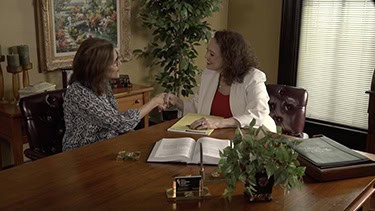
As of November 2021, there have been 5,568 auto accidents that have resulted in serious or fatal injuries in Tennessee. Depending on the severity and exact nature of the injuries you sustained in an auto accident, you could be facing costly medical expenses, months of missed workdays, and consequently lost income, as well as emotional and physical pain and suffering.
In the worst-case scenario, you could be looking at lifetime medical and home treatments, permanent disability, inability to ever work again, and all kinds of emotional and mental problems due to your decreased quality of life. But it’s crucial to note that whether you could pursue compensation and how much you could potentially receive would depend on Tennessee’s fault laws.
If you or a family member has suffered injuries in a Tennessee auto accident, our experienced auto accident attorneys at Flora Templeton Stuart Accident Injury Lawyers can assess your case for free to figure out your compensation amount and whom you could recover from.
What’s In This Guide:
- Is Tennessee a No-Fault State?
- Do I Need Legal Representation After an Accident?
- Sample Personal Injury Case Results
Is Tennessee a No-Fault State?
When it comes to auto accidents in Tennessee, the state follows the fault or at-fault auto insurance system, which means that, no, Tennessee is not a no-fault state. Although specific statutes for auto insurance requirements differ widely from one state to the next, all states require all motor vehicle drivers to carry some form of auto insurance, regardless of what fault system the state follows.
Auto insurance helps protect you and those covered by your insurance in case an auto accident occurs. Depending on your specific insurance coverage, it can help pay for injuries and property damage to other parties if you were found at fault for an accident or cover the injuries and property damage you suffered in an auto accident.
But what exactly does this mean for victims who have been injured in an auto accident?
What’s the Difference Between a “No-Fault” and a “Fault” State?
Most states follow the at-fault auto insurance system, which follows the tort liability rules, such that the driver who caused an auto accident is liable for compensating the other party’s accident-related losses and damages. Auto insurance providers must cover damages their at-fault policyholders cause based on their degree or level of fault in an auto accident, but only up to their policyholder’s coverage limits.
If the injured party doesn’t agree with the amount of compensation that the insurance provider is offering or the offered compensation isn’t enough to cover their losses, they have the option of suing the liable party to seek more compensation. The injured victim could then recover medical bills, lost income, and pain and suffering damages.
On the other hand, no-fault states follow the no-fault auto insurance system. Through no-fault insurance, also commonly known as personal injury protection (PIP) coverage, the driver’s own auto insurance provider covers accident-related damages (up to the coverage limits) regardless of who caused or was at fault for an auto accident.
With no-fault auto insurance, innocent victims won’t need to prove that the other driver caused the accident before they could obtain compensation. However, depending on state laws, an injured victim might be barred from suing an at-fault driver and/or seeking pain and suffering damages if they don’t meet the state’s serious injury threshold.
How Does the Tennessee At-Fault Law Change Filing?
When drivers get into an auto crash, their auto insurance plans could step in and help safeguard their finances from the eventual fallout, especially if serious injuries are involved. In no-fault states, the driver’s PIP insurance coverage pays for the driver’s medical expenses, while in at-fault states, such as Tennessee, the at-fault driver’s auto insurance plan compensates the other driver’s damages.
In Tennessee, the law requires all drivers to carry liability insurance coverage, which helps pay for any losses another driver, pedestrian, or road user incurred because of the accident that the driver caused. Under the law, drivers in Tennessee must have these minimum coverage limits:
- $50,000 for all injuries or deaths for every auto accident
- $25,000 per injury or death for every auto accident
- $15,000 to cover property damage for every auto accident
Tennessee drivers likewise have the option of purchasing extra protection on top of the required auto insurance limits, which includes collision coverage, comprehensive coverage, medical payments coverage, and uninsured or underinsured motorist insurance.

This means that depending on which types of auto insurance coverage an injured driver has, they could either:
- File an insurance claim with their insurance provider, if they have relevant insurance policies (other than the minimum required limits);
- File a claim against the at-fault driver’s insurance provider; or
- File a personal injury claim against the at-fault driver.
Do note, though, that talking to an experienced Tennessee auto accident lawyer before you even talk to any insurance providers or file any claims will help you determine which legal option is best for your specific case.
If I File a Claim, Will I Receive Compensation?
When it comes to auto accidents, it isn’t always clear which driver caused the accident. Some accidents could be so complex that fault isn’t always immediately clear. In accidents in which both drivers are proven to be partially liable for causing an accident, insurance providers will determine each driver’s degree or level of negligence.
This means that negligence will always come into play where fault for an auto accident is being contested, whether as part of a lawsuit or insurance claims process. This also means that to be able to receive compensation from the liable party, you will need to establish that they were negligent by proving the following:
- The other driver must have been reasonably careful and owed you a legal duty of care, which is a given for anyone who drives a motor vehicle.
- The other driver wasn’t reasonably careful. This is also known as violating or breaching the legal duty of care the driver owed other road users. When determining whether the driver was adequately careful, the driver’s behavior during the accident is compared with a reasonable person’s conduct. Basically, if the driver’s conduct doesn’t meet the conduct of a reasonable person under the same conditions in the same situation, the other driver has breached their legal duty of care.
- Your injuries resulted from the other driver’s actions. For instance, let’s say you’re suing the driver who crashed into your car head-on because you suffered multiple bone fractures and deep lacerations. You must prove that your injuries were directly caused by the head-on crash and not by any other event.
- Your suffered provable damages or losses. Remember that you’re entitled to seek compensation for your medical bills, vehicle damage, lost income or earning ability, and pain and suffering. If you don’t have any measurable losses, then you can’t possibly recover anything.
So When Can I Recover Compensation in an Auto Accident in Tennessee?
Tennessee follows the modified comparative negligence model when determining negligence in auto accidents. Other states follow the contributory negligence model or the comparative negligence model. The modified comparative negligence model Tennessee follows is based on the 50% rule.
For injured victims to be eligible for compensation following a Tennessee auto accident, they will need to prove that they’re less than 50% responsible for the auto accident. If they’re determined to be 50% or more responsible for the auto accident, they will automatically be ineligible to seek compensation from the other driver. The percentages of negligence will also directly affect the compensation amount you can recover.
It is likewise vital to remember that in Tennessee, the statute of limitations or time limit for filing a claim against the at-fault party is one year after the auto accident date. You are also required by law to file an accident report within 20 days of the crash.
How Fault and Modified Comparative Negligence Work in Tennessee: A Practical Example
To illustrate how modified comparative negligence works when assigning fault in Tennessee auto accidents, let’s say that Nicky was driving home when Jack ran a stop sign and crashed into Nicky’s car. Nicky suffered serious injuries from the crash.
When police officers arrive at the crash site, witnesses told them that Nicky was looking at their mobile phone right before Jack collided with their car. Nicky sued Jack for $150,000 in damages, but the jury determined during the trial that Nicky also contributed to the crash. The jury concluded that Jack was the main cause of the accident and determined that Jack was 85% liable for the crash.
However, the jury also found that Nicky partially caused the crash because Nicky was on their mobile phone during the accident, and believed that if Nicky wasn’t on the phone, they could’ve prevented the accident. Because of this, the jury determined that Nicky was 15% at fault for the crash. Since Nicky shares 15% of the fault for the crash, Nicky only recovered $127,500.
Proving Fault After an Accident
There is really no one-size-fits-all method to proving fault since it will always depend on the specific circumstances of each auto accident. That being said, sometimes, proving fault for a crash is easy, and if the injured victim is lucky enough that the at-fault driver’s insurer is cooperative, recovering compensation might be fairly easy. But this is rarely the case.
This is why it’s immensely important that you work with a skilled Tennessee auto accident lawyer that can prove fault for your accident case. Especially since the other driver’s insurer will surely have their own legal team and experts to dispute their client’s fault and liability for the accident.
What If the Other Driver Does Not Have Insurance?
As mentioned earlier, all drivers in Tennessee must have the minimum liability insurance coverage limits. Unfortunately, there are still a lot of irresponsible drivers that don’t carry the required auto insurance coverage, which leaves them and other road users unprotected when an auto accident occurs. Likewise, depending on your injuries and the extent of your damages, the losses you incurred from the crash could exceed the minimum coverage limits.

Underinsured or uninsured motorist insurance coverage, although optional in Tennessee, could help safeguard drivers and their passengers in an auto accident in which the at-fault driver doesn’t have insurance or their coverage limits are not enough to pay for all the injured driver’s damages.
If you suffered injuries in an auto crash with a driver who doesn’t have auto insurance and you don’t have underinsured or uninsured motorist insurance, obtaining compensation could be very challenging. But this doesn’t necessarily mean that you cannot recover compensation.
Even if pursuing compensation from the liable driver’s insurance provider is not possible, you could elect to file a claim against the driver. The important thing to remember is that the right Tennessee auto accident attorney could figure out the best options for you and determine the most viable sources of compensation suitable for your case.
Do I Need Legal Representation After an Accident?
If you only sustained very simple injuries that have healed completely and fault for the accident is clear, with the other driver taking full responsibility for their actions, you could possibly settle the claim on your own. The reality is, however, that most auto accidents claims are not easy to handle.
While you might not have to file a claim against the other driver or pursue a lawsuit, you might need help ensuring that your insurance settlement would be enough to cover all your accident-associated losses. If you have severe injuries, missed lots of workdays, or will need future medical care, an experienced Tennessee auto accident attorney is highly capable of:
- Investigating what the auto accident’s cause and all potentially liable parties
- Collecting accident-related evidence to strengthen your case
- Evaluating and calculating your damages to ensure that you receive sufficient compensation
- Handling all the negotiations with the liable parties
- Building a personal injury case and filing a lawsuit, which involves pretrial discovery, subpoenas for securing relevant documents, interrogatories, and depositions, among others.
Sample Personal Injury Case Results
With personal injury cases, results matter. That’s why the Flora Templeton Stuart Accident Injury Lawyers are proud of what we obtained for our clients through personal injury settlements or lawsuits. Here are just some of them:
- A $2.825 million brain injury settlement for a young family man who sustained a crushed skull and permanent brain damage.
- A $2 million pick-up vs. 18-wheeler accident damages award for a family of four who suffered severe injuries, including brain injuries, when they were ran off the interstate by a semi-truck driver.
- A $1.7 million commercial truck accident settlement for a client who suffered severe injuries when they got rear-ended by a commercial truck.
- A $1.65 semi-truck accident damages award for a client who sustained fractured legs when a semi-truck ran a red light.
- A $1.45 million wrongful death settlement for a child who was hit by a negligent driver.
- A $1.5 million brain injury settlement for a client who was hit by a semi-truck.
Find Out What Our Top Tennessee Auto Accident Attorneys Can Do For Your Case
 No matter what kind of auto accident you have been through, the best recourse for any injured victim is to seek legal guidance from an experienced Tennessee auto accident attorney. At Flora Templeton Stuart Accident Injury Lawyers, we will fight to uphold your legal rights, ensure that you receive fair compensation, and make certain that the auto accident and your losses affect your health and finances as little as possible.
No matter what kind of auto accident you have been through, the best recourse for any injured victim is to seek legal guidance from an experienced Tennessee auto accident attorney. At Flora Templeton Stuart Accident Injury Lawyers, we will fight to uphold your legal rights, ensure that you receive fair compensation, and make certain that the auto accident and your losses affect your health and finances as little as possible.
Reach out to us online or call (888) 782-9090 to arrange your free case evaluation with our Tennessee auto accident attorney today.

